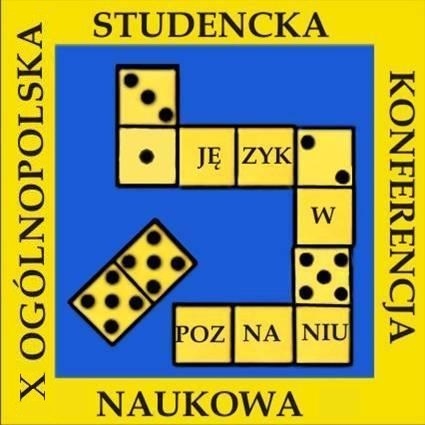X edycja - abstrakty
Główna |
Organizacja |
Abstrakty |
Program |
Plakat |
Galeria |
Wytyczne |
Ankieta |

Prezentujemy listę referentów oraz tytułów wystąpień wraz ze streszczeniami. Zapraszamy do lektury!
Przypominamy, że język, w którym podany jest tytuł, jest równoznaczny z językiem całego wystąpienia.
Pod każdym streszczeniem umieszczony jest skrócony program, dzięki któremu można dowiedzieć się, jakie inne referaty będą wygłaszane podczas danej sekcji.
Marta Orlik (Uniwersytet Marii Curie-Skłodowskiej)
Formulaic Sequences in First Language Acquisition and Foreign Language Learning
Formulaic sequences constitute a large part of the language we speak. This group contains, for example, idiomatic expressions, proverbs, mnemonics, or larger texts taught as a whole, like songs or prayers. They seem to be stored in our mental lexicon rather than created from scratch every time they are needed. The aim of the presentation is to examine some types of formulaic sequences and discuss their function in communication. First, it describes how children acquire and make use of formulaic sequences when they start speaking English as their mother tongue. Secondly, the presentation discusses the difference between learning English as an L1 and as an L2. The presentation aims to discuss various strategies used by children who do not speak English but have to use it because they find themselves in English-speaking environments. Furthermore, it discusses some selected issues concerning adults learning formulaic sequences and major problems connected with it. Such difficulties usually stem from not having enough linguistic input from native speakers and therefore not being able to recognise strings of words that are most likely to occur.
Gdzie i kiedy:
| W tym samym czasie ... 416, 504 | sala: 419 moderacja: Tomasz Mowlik |
| 15:35-15:50 | Judyta Obrzeżgiewicz (Uniwersytet Śląski) - Dydaktyka frazeologii języka ojczystego – wyzwania i problemy |
| 15:50-16:05 | Nadja Sarnowska (Uniwersytet im. Adama Mickiewicza) - Przekład tekstów autentycznych na język obcy jako czynnik motywujący w dydaktyce języka obcego oraz w kształceniu kompetencji translatorskiej |
| 16:05-16:20 | Marta Orlik (Uniwersytet Marii Curie-Skłodowskiej) - Formulaic Sequences in First Language Acquisition and Foreign Language Learning |
| 16:20-16:35 | Aleksandra Urbaniak (Uniwersytet im. Adama Mickiewicza) - Konceptualizacja miłości w wybranych utworach Jana Andrzeja Morsztyna i Giambattisty Marina |
| 16:35-16:55 | dyskusja |